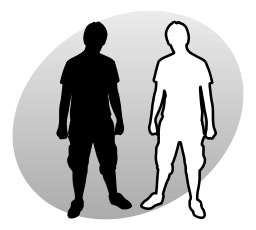Bias
Did I Offend You? Take Responsibility for a Racial Slight
We are often unaware of our own attitudes and biases
Posted May 25, 2015

By Max Belkin, Ph.D.
It is very hard to acknowledge our own contribution to racism. In myriad everyday situations, from corporate offices to shops and restaurants, many people of color experience hostile looks and offensive remarks. However, few Whites acknowledge or take responsibility for their contribution to this behavior.
Often times, racial profiling (such as stopping people for “driving while Black” by the police) is blatant, thus easy to condemn. But most racially-tinged offenses are more covert and subtle. As a result, it is often hard to pinpoint and discuss the psychological damage they inflict. I believe that by examining everyday public and private interactions with people of color, White Americans might begin to mitigate racism.
A Personal Story
One beautiful summer morning my friend Dan and I were playing tennis in a quiet, leafy suburb of Chicago. There was not a soul around, so we left our backpacks on a bench outside of the tennis court. At one point during the match, my peripheral vision registered a young Black man walking by the court, several feet away from the bench with our belongings. Suddenly, I felt very thirsty. I interrupted the game and dashed to get some water from my backpack. The Black man looked at me with a pained and frustrated expression. “Man, don't worry. I am not going to take your stuff,“ he said to me.
Now it was my turn to feel surprised and misunderstood. I raised my eyebrows and shook my head. When I got back to the court, I told Dan what had just transpired, fully expecting his support. Instead, Dan told me that he too thought that I ran to the bench out of concern that the Black man would steal our belongings. I was very perplexed. Could it be that Dan and the stranger knew me better than I knew myself?
Do Intentions Matter?
My first reaction was defensive. Like many White people facing a similar situation, I thought to myself, “I am not prejudiced. I have Black friends. Dan is wrong about me.”
Unfortunately, this is where both self-reflection and conversation usually end. Whenever White people decide that they did not intend harm, they conclude “the case is closed.” However, this position is flawed. It implies that both I and the stranger I offended perceive our interaction the same way, that is, my way.
This implicit assumption that I have the right to decide what is real and rational both for myself and for other people is at the core of White privilege. Of course, intentions are important. Whether I offended that Black man deliberately or unintentionally matters a great deal. However, regardless of my intentions, the other person cannot read my mind and evaluate my motivations. All he has at his disposal is the way my behavior affects him.
In fact, to insist that our good intentions are the only things that matter in situations that smack of racial stereotyping is to devalue and dismiss the other person's emotional experience. When a White individual proclaims, “You are wrong. My action is not offensive because I am not a racist!” the implication is that the person of color is being too sensitive, irrational, or somehow unaware of what really happened. Adding insult to injury, this reaction implicitly questions the intelligence and emotional maturity of the person who was offended.
Our Self-knowledge is Obscured by Blind Spots
Our ability to grasp all the thoughts and feelings that motivate our actions is quite limited. Other people sometimes know me better than I know myself. For instance, by paying attention to my body language, the tone of voice, and facial expressions, other people often notice things about me that escape my awareness. In that tennis court example, the Black stranger might have had a glimpse of the side of me that I refuse to own.
For many White folks like myself, our own racial prejudices are laced with so much shame and guilt that we are loathe to acknowledge them even to ourselves. That is why any suggestion that our actions might be motivated by some sort of racial bias usually triggers a lot of anxiety and leads to a defensive dismissal of the other person's hurtful experience. “It could not have happened. I am not bigoted,” we tell ourselves and others.
In every interpersonal encounter, both people have some valid insight into their own and the other person's thoughts, feeling, and actions. At the same time, the way we make sense of our encounters with others, in private and in public, is shaped by our personal and family histories. For some of us, these formative experiences are steeped in privilege; others have had to contend with the painful and omnipresent reality of prejudice and negative stereotyping.
If I could go back to that moment in the park, I wish I had taken a moment to think about the other man’s experience, what it was like from his point of view. Then I might have said, “You are right: this is messed up and frustrating. I am acting like a paranoid White guy. I am very sorry.”
Max Belkin, Ph.D., is a relational psychoanalyst and psychologist. He is a graduate of NYU and the William Alanson White Institute and serves on the editorial board of Contemporary Psychoanalysis. He teaches graduate courses in couples counseling and individual psychotherapy at NYU. He works with individuals and couples in his private offices in Greenwich Village, New York City, and in Atlantic Highlands, NJ.




